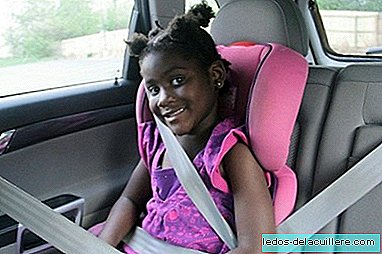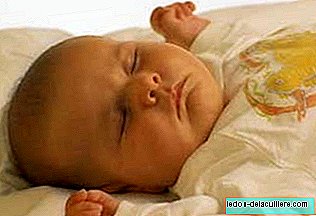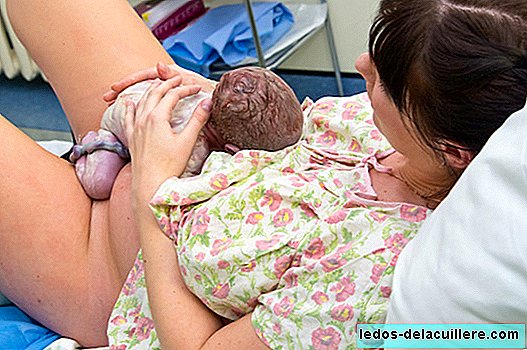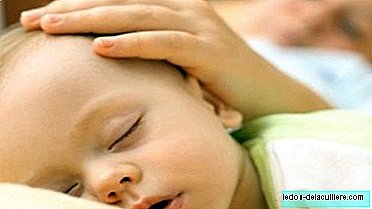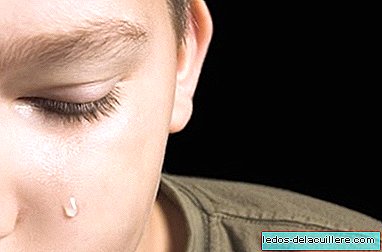
I have recently been reading statements by the ex-effensor of the minor and psychologist Javier Urra in which he attributed the suicides and drug problems of young people to the overprotection of parents and proposed a lot of social relationship with close people to be happier. And I wonder, Happiness, where did they lose it when they were children?
Look, of course, overprotection understood as real carelessness or repression is not good and clear that surrounding ourselves with people we love makes us happy (provided it is a healthy and non-abusive love).
What can cause addictions, depression and suicides?
But, in general, the idea that overprotection causes drug, depression and suicide problems seems simplistic, adult-centered and frankly offensive towards children who have really suffered trauma and violence due to lack of adequate protection for those who should take care of them. I think you have to think first the child victims of violence, those who lost their happiness as children.
Happiness should be the essence of childhood, and in fact, it should be the engine and goal of our lives. But there are people who seem to never achieve happiness and it seems that suicide, drugs, crime, depression and the inability to manage their own lives stalk many people since their early youth.
Let's be clear. Today's childhood may be protected as ever by law and that parents try to avoid risks to their children, but if we go to the data on the violence suffered by children, we will see where to start investigating when a young person has A problem is not in whether his parents want him "too much" or consent "too much."
Where we would have to really investigate the traumas, abuses and exposure to violence that the young person has been able to suffer since childhood and adolescence.
That is why I would like to cite some very general information about the violence children suffer. In some cases I can give figures, in others not, because they are figures that it seems that nobody cares to investigate.
I hope that these ideas serve, in part, to refute Mr. Urra's simplistic explanation of the cause of unhappiness in children and young people, drug problems, depression and suicides in young people.
The causes of unhappiness
Of course they seem to me much more serious and decisive issues in someone's personal biography and I also consider that they can be the cause of unhappiness: from many psychological, social and emotional problems that these people, without proper therapy, can drag their whole lives.
- 15% of boys and 26% of girls will suffer some kind of sexual abuse. You have to know the figures of sexual abuse during childhood or adolescence.
- Possibly 56% of gay teenagers suffer harassment. Many gay teenagers suffer violence and habitual abuse. Almost half of them think about suicide.
- 80% of students suffer bullying. And the figures are terrible if we think about what it means to suffer or witness bullying.
- The violence in the family it's terrible. More than 50% of parents hit their children, which makes them aggressive and increases the possibility of suffering from mental disorders. Not to mention how many will exercise, with the complacency or apology of the environment, other types of non-physical violence such as insults, humiliating comments, verbal aggressions, disproportionate punishments, devaluation, screams and attitudes that make them feel fear.
- He child abuse or trauma for violence it is not usually detected nor will it be treated in most cases. Not only that, but it will be denied to the victim herself both in her childhood and in adult life.
- A large majority of babies suffer tactile or affective deficiencies in the primal stage by methods that indicate that you do not have to attend to their crying, or take them in their arms, or take them, or breastfeed them on demand, or attend them if they ask for company at night.
- Many of the births have some degree of emotional violence or separation from the child
- Almost all children observe murders and violence either directly or indirectly in the media before being prepared to assimilate it and violence is even presented as part of normal entertainment.
- All children living with abuse among adults they are victims of violence directly or indirectly and most are not rescued from living with physical or emotional abusers.
- Violence against children, if it does not leave marks or is very serious, is even valued, applauded and socially accepted.
Childhood traumas and emotional problems
All these facts I think explain much better the possible causes of trauma, victimization, the inability to face challenges, addictions, depression and suicide than adultcentric theories. Violence and abuse are surely Causes of loss of happiness and competition of many children, which, despite the resilience of the human being, can be ballasted forever.
When children are truly protected from all this violence, we speak, if you want, Mr. Urra, of the concept of overprotection. Until then, out of respect for the victims, I think we have to be more serious when we talk about those children who lost the ability to be happy.




